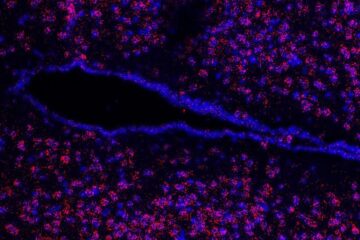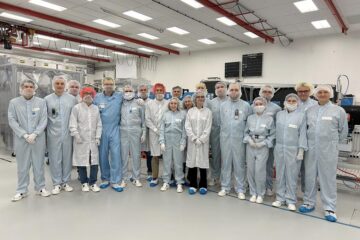Protein kinase MST 1 – the key to a new diabetes therapy

Researchers of molecular diabetology at the University of Bremen have now identified a key protein, protein kinase MST-1, which is responsible for the death of these insulin-producing cells due to apoptosis (programmed cell death) and thus for the formation of the diabetes disease. This is valid for both forms of diabetes, namely the autoimmune type 1 and type 2, which depends on age and obesity. More than 7 million people are affected by this disease in Germany.
The scientists are carrying out intensive research on the involvement of the protein kinase MST-1 in the apoptopic processes in the beta cells.
In laboratory models, it was possible to demonstrate that the targeted inhibition of MST-1 was able to maintain the secretion of insulin and prevent the disease from progressing. Assays have been developed which can be used by means of in vivo and in vitro tests to show which MST1 inhibitors can prevent diabetes.
A worldwide patent is applied for this new approach. Companies are addressed which may are interested in a license or cooperation with the university of Bremen.
Further information: PDF
InnoWi GmbH
Phone: +49 (0)421/9600-722
Contact
Cornelia Sitte
As Germany's association of technology- and patenttransfer agencies TechnologieAllianz e.V. is offering businesses access to the entire range of innovative research results of almost all German universities and numerous non-university research institutions. More than 2000 technology offers of 14 branches are beeing made accessable to businesses in order to assure your advance on the market. At www.technologieallianz.de a free, fast and non-bureaucratic access to all further offers of the German research landscape is offered to our members aiming to sucessfully transfer technologies.
Media Contact
All latest news from the category: Technology Offerings
Newest articles

Cost-effective, high-capacity, and cyclable lithium-ion battery cathodes
Charge-recharge cycling of lithium-superrich iron oxide, a cost-effective and high-capacity cathode for new-generation lithium-ion batteries, can be greatly improved by doping with readily available mineral elements. The energy capacity and…

New regulator of eating behaviour identified
The rapidly escalating prevalence of overweight and obesity poses a significant medical challenge worldwide. In addition to people’s changing lifestyles, genetic factors also play a key role in the development…

Harnessing Machine Learning for Breakthroughs with High-Power Lasers
A team of international scientists from Lawrence Livermore National Laboratory (LLNL), Fraunhofer Institute for Laser Technology ILT, and the Extreme Light Infrastructure (ELI) collaborated on an experiment to optimise high-intensity…

















